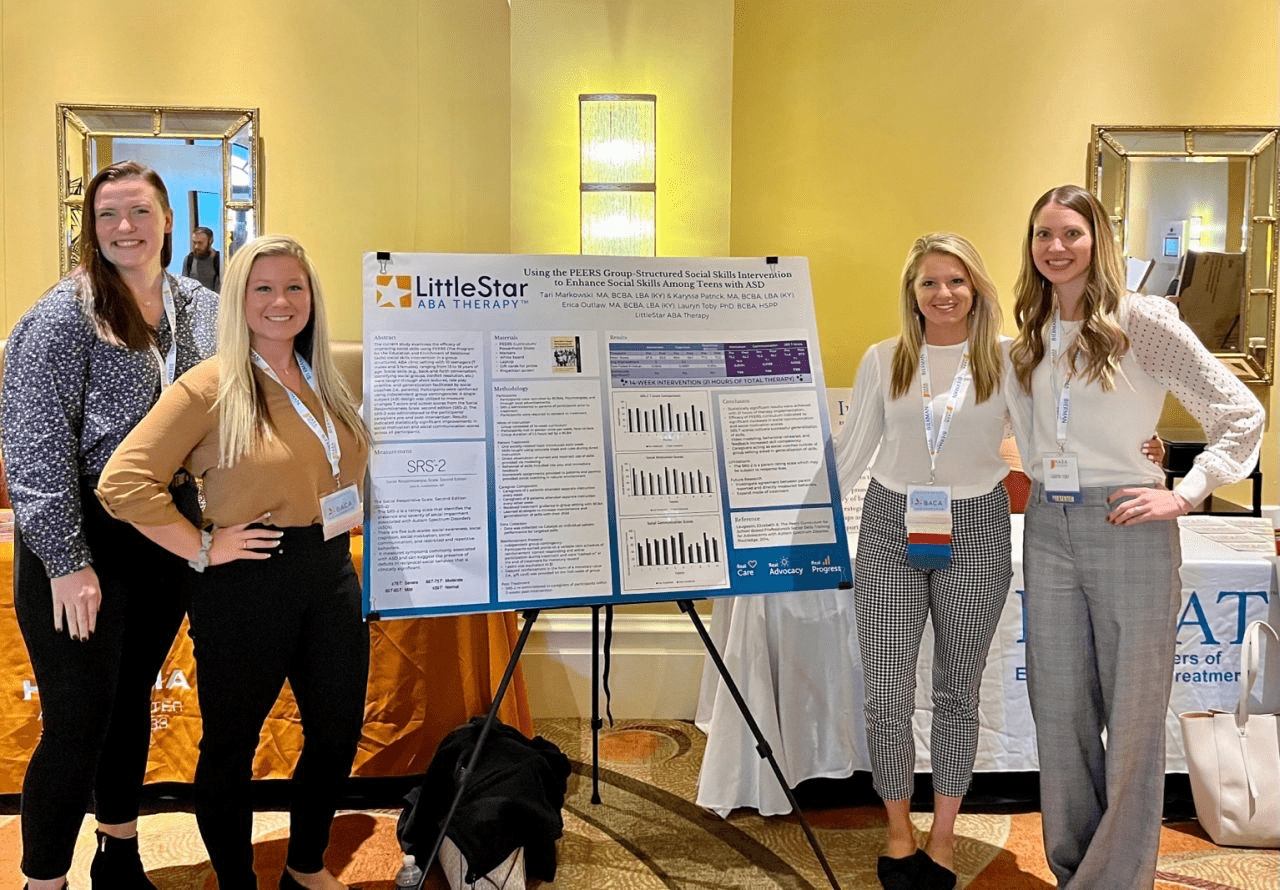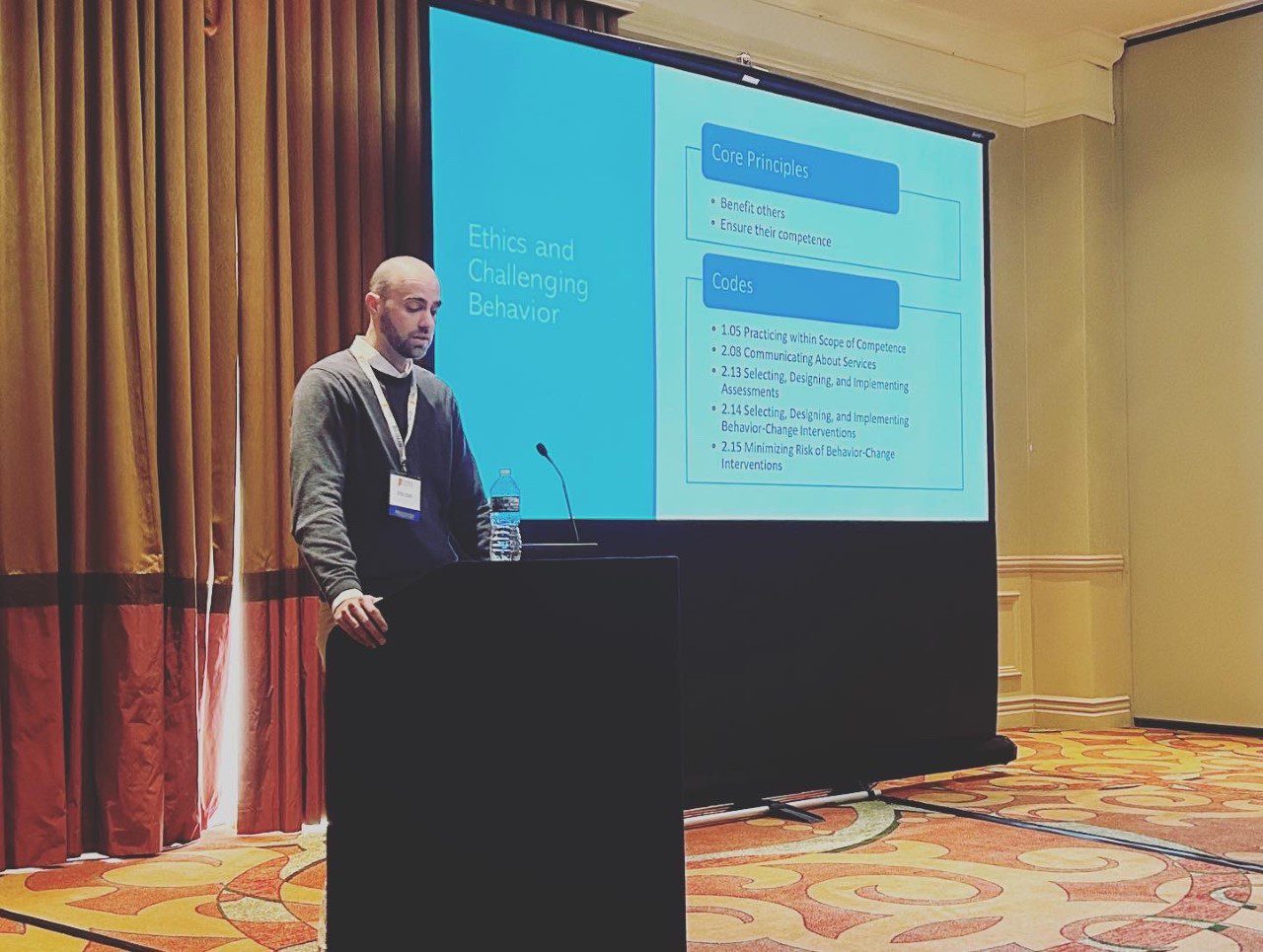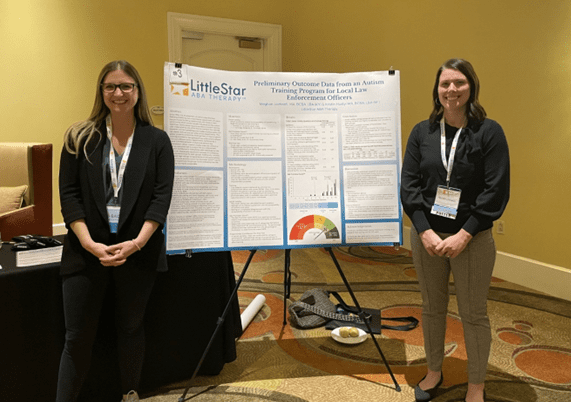Research And Development
Applied Research
At LittleStar ABA, it is part of our strategic vision to hone the skills of our clinicians and improve the outcomes of patients by fully embracing the scientist-practitioner model, allowing research to inform practice and, in turn, identifying important practice questions that drive applied research. To ensure that we remain a leader in improving both patient lives and the field of ABA at large, we have worked to establish infrastructure to support our internal research initiatives.
Journal Club
The LittleStar Journal Club meets monthly to review and discuss one or more peer-reviewed research articles on topics of clinician interest and relevant to patient care. The primary aims of Journal Club are to:
- Stay abreast of new knowledge
- Promote awareness of current research findings
- Learn how to critique and appraise research
- Inform practice with LittleStar patients
Each journal club starts with a brief review of the article, followed by a discussion facilitated by several “designated readers.” Therefore, while participants are strongly encouraged to read the featured article prior to attending, all clinicians are welcome to participate even if they have not read the article in advance.
Research Group
The LittleStar Research Group is a pioneering research team dedicated to pushing the boundaries of clinical practice to improve patient care through innovative research. Research Group provides clinicians with an opportunity to gain hands-on experience developing research protocols and utilizing research methods in a safe, respectful, and collaborative environment. Research Group unlocks the potential for groundbreaking discoveries and innovations to support BCBAs in delivering the highest standard of care to patients, while advancing ABA knowledge and shaping the future of ABA services.
Research Review Committee
The LittleStar Research Review Committee (RRC) is composed of some of the field’s most renowned figures in applied research, advocacy, and education. The committee meets 2-4 times annually to review clinical research proposals and evaluate the design, methods, and potential risks to participants, and is responsible for determining that the rights and welfare of human subjects in research are adequately protected. By conducting thorough and unbiased reviews, the RRC promotes the responsible conduct of research and upholds the ethical principles of beneficence, justice, and respect for all individuals.
More Info
—-



